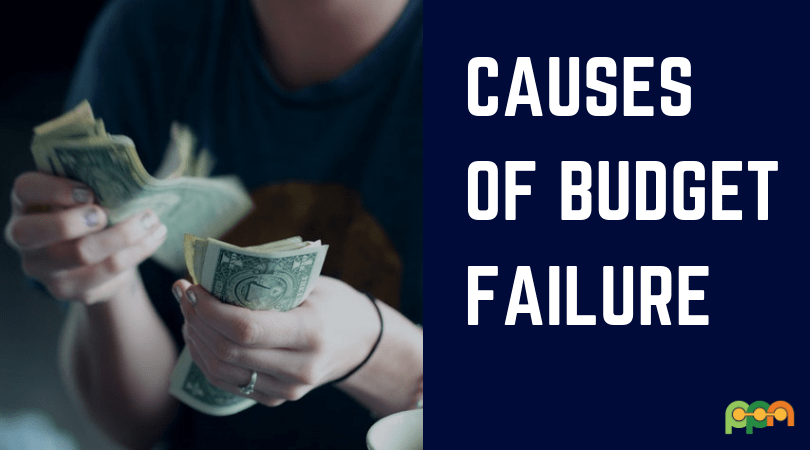
Do you know why the budget fail? Do you have trouble sticking to your budget?
Unless you are truly a pillar of financial discipline, you’ve probably had to deal with personal budgeting failures at some point or another in your adult life. Forgetting to factor in an unexpected expense, like car insurance, splurging on a really nice meal, or ending up with an emergency car repair—all these things tend to wreak havoc with our budgets unless we’ve got our rainy day funds in order.
Personal budgeting is prone to failure especially if we don’t follow some basic, but vital, budgeting rules of thumb.
Here’s a list of the top 4 reasons why your budget fails:
-
Budget Buster #1 – Negative Attitude
It cannot be emphasized enough–a positive attitude toward budgeting is essential to your success. If you think of budgeting in negative terms (such as a financial diet, financial handcuffs, restrictive, penny-pinching, a sacrifice, etc.), you are sure to fail, unless you are a martyr who finds some strange reward in a punishing experience.
A positive attitude means you think of a budget as a means to an end–a way to achieve your dreams and goals–and that postponing the instant gratification of spending all the money you earn is worth the rewards you will earn in the end.
-
Budget Buster #2 – Lack of Motivation
What is your motivation for budgeting? Are you trying to appease a nagging spouse? Following the terms of a debt repayment plan with a consumer credit counseling agency? Complying with an agreement made in bankruptcy court? These are not bad motivations, but they are external pressures and will probably not be easy to maintain over time. The best motivations are internally generated: do you honestly believe that budgeting can help you meet your goals?
-
Budget Buster # 3 – Unrealistic Expectations
What do you expect to gain from instituting and following a budget? Do you think that setting up a budget will reveal large caches of hidden cash or that the budget fairy will sprinkle fairy dust over your budget and magically transform your spending habits after a month or two of tracking expenses?
The reality is that budgeting is an endurance event–those who stick with it, through thick and thin, will come out ahead financially. Do not expect miracles. What you WILL see if you stick with it is steady, measurable progress towards the goals that really matter to you.
It can be very difficult to stick to your budget if you are just starting to do it. But if you have a positive attitude, are properly motivated, and have realistic expectations, you will surely be able to succeed in doing this.
-
Budget Buster # 4 Persist, Persist!
Over time, repetitive actions become a habit. Bad decisions such as overspending are minimized in the habit-forming process.
Despite any lapses in your behavior, returning to your pre-budget spending patterns can eventually cause change. Like most goals in life, success comes to those who persist.
Whenever you overspend, try to determine the causative factors leading to the impulsive purchase and whether or not the decision was justified. Review your budget for any necessary amendments. If not, recognize the failure and begin anew to build good spending habits. Over time, as you incorporate them into your spending, fiscal discipline should become much easier.
Remember…
While living on a budget can be difficult – especially in the early weeks – persistence can prove successful. Living within your means can not only increase your sense of security but can also reduce stress and transform money into a tool to help you reach your goals.
When you failed, recognize that living on a budget is a life change – not a destination. Learn from your mistakes and move on, knowing that persistence is sure to result in good habits of thrift and fiscal discipline.

